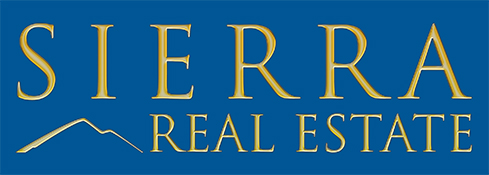By Leigh Raper
Savvy consumers know that companies do all kinds of things to increase the bottom line. Airlines, for instance, charge for a checked bag, while others tack on fees for extra leg room. And cereal companies keep costs down by putting fewer flakes in the same size of box.
But renters sometimes forget their landlord is running a business too – until they sign a new or renewed lease, that is. Renters may discover that while the rent seems reasonable, the landlord has included itemized charges for utilities or other amenities that add up to a sizable bottom-line difference.
The rental market is extremely competitive in many urban markets right now. According to the Zillow Group Consumer Housing Trends Report 2017, renters account for 37 percent of all households in America – or just over 43.7 million homes, up more than 6.9 million since 2005.
This jump in the number of renters has put pressure on both tenants and landlords. Tenants are scrambling to find the right place, while landlords are trying to find the right price. And both parties are getting creative about how and when to spend their money.
Power play
Utilities are not exactly a hidden cost, but they’re often overlooked by tenants eager to move into a new apartment or renew their current lease.
Always factor utilities into the overall cost of the property. Landlord-tenant laws in each state govern how utilities can be billed, along with what recourse either party has in the case of missed payments or shutoffs.
Sometimes utilities are in the landlord’s name and included in the overall rent charge. Other times, tenants are required to place the electric or gas bills in their names. (Many municipalities require the water and/or sewer accounts to stay in the landlord’s name.)
Then there’s third-party billing: situations where master meters serve an entire building, in which case the landlord splits the charges among all the tenants and bills them individually. Third-party billing makes sense for the landlord, who can advertise a base rental price but charge the utilities as an add-on.
City ordinances
Certain cities have clamped down on third-party billing, which they view as deceptive. In Seattle, for example, the third-party billing ordinance covers all residents living in buildings with three or more units. The ordinance was written to protect tenants from unscrupulous landlords who were fraudulently overcharging them.
The Tenants Union of Washington State, a nonprofit dedicated to education, organizing and advocacy for tenants, provides detailed information for renters about third-party billing and other important issues related to utility costs.
Many of the best practices they recommend apply to all tenants, regardless of location:
- Ask questions about utility service before you sign a lease.
- Set up your utility accounts quickly.
- Pay utility bills promptly and keep documentation of all payments.
- Take steps to protect yourself with the landlord.
- Act immediately to resolve utility disputes.
Other “hidden” charges
There are other fees, besides utilities, that your landlord might charge. Some of these are optional add-ons determined by a certain tenant’s particular situation, but others apply to everyone. Landlords in a competitive rental market might even increase these fees based on supply and demand.
The add-ons can include pet fees or a separate charge for parking. Some properties charge an application fee – whether or not the prospective renter is approved.
Other properties, particularly condos or developments subject to homeowners associations (HOAs), charge move-in fees for tenant-occupied units. Amenities, such as cable TV or internet access, which are not considered utilities under most ordinances, might also be billed through an HOA or the landlord.
Of course, this is all in addition to a security deposit and any rent you might have to prepay, like first and last month’s rent due upon move in.
Have questions? Need help?
Advocacy organizations, like the Tenants Union in Seattle, operate around the country. These nonprofits offer help and information to renters.
State agencies also provide information for both tenants and landlords. For example, Georgia’s Department of Community Affairs publishes a Georgia Landlord-Tenant Handbook on its website. A quick internet search will yield similar results in most states.
Sometimes, though, problems and questions can’t be resolved with online information. That’s where consulting an expert can be a smart solution.
Lawyers who specialize in landlord-tenant law not only are familiar with the underlying law in a given geographic region, but also have experience with the systems and processes that can efficiently and economically resolve disputes. Often, spending money for expert advice early on can yield big savings in the long run.
Related:
- The Top 5 Renting Nightmares and How to Face Them
- 10 Ways to Make Sure You Get Your Security Deposit Back
- Renters Insurance Required: A Win-Win for Apartment Owners and Tenants
Note: The views and opinions expressed in this article are those of the author and do not necessarily reflect the opinion or position of Zillow.
Originally published April 8, 2016.
